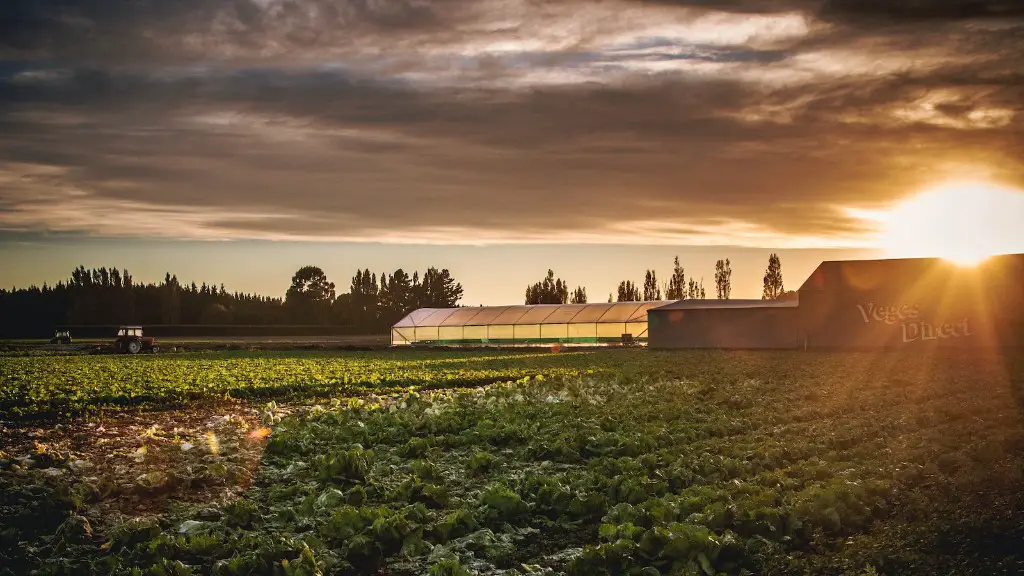Agriculture is one of the largest employers of immigrant workers in California. It is estimated that roughly 75% of California’s hired farm labor is of foreign origin. The figures come from data collected by the U.S. Department of Labor’s National Agricultural Worker Survey (NAWS), which surveyed more than 3,000 agricultural workers in California. The survey reveals that a majority of California’s agricultural workers are immigrants, and the majority of these immigrants are from Mexico, which accounts for 54% of the foreign-born agricultural workers.
The survey indicates that immigrant workers in California’s agricultural sector tend to have low productivity and wages, and a disproportionate number of them are employed as irregular (seasonal) laborers. In addition, most immigrant agricultural workers do not have access to benefits such as health insurance, vacation and sick leave, or retirement plans. This situation is compounded by the fact that most immigrant agricultural workers encounter language and cultural barriers when trying to navigate employment systems in the U.S.
Immigrant workers in California’s agricultural sector also face many legal challenges. According to the U.S. Department of Labor’s statistics, many immigrant agricultural workers lack proper immigration documents and often they are unaware of the legal consequences of working in the U.S. without authorization. The survey reveals that 44% of the immigrant agricultural workers surveyed are unauthorized, which further compounds their already difficult situation.
Immigrant workers in agriculture are often the last to benefit from any labor laws or government policies designed to protect the rights of workers. Since immigrant agricultural workers are often employed in illegal or irregular jobs, they are usually not covered by the protections of labor laws. This means they are often exploited and can be subject to harsh and often dangerous working conditions.
There is no denying that immigration is a key factor in the production of California’s agricultural industry, and immigration policies should reflect this reality. It is essential that immigration policies ensure that immigrant workers in the agricultural industry are afforded the same rights and protections as other workers, and that immigration laws are properly enforced so that employers cannot exploit immigrant workers through low wages, long working hours, or hazardous working conditions.
Socioeconomic Impact of Immigrant Agricultural Workers
Immigrant agricultural workers have a substantial impact on the economy of California. According to the NAWS, agricultural laborers contributed more than $22 billion dollars to California’s GDP in 2017. Agricultural workers represent an important source of income for many rural areas, and provide essential services for these communities. In addition, agriculture provides hundreds of thousands of jobs for immigrants, ensuring that the sector is an essential component of California’s economy.
Immigrant workers also play an important role in community development. Many immigrant workers are actively involved in philanthropic activities and are a valuable source of labor for projects that benefit the community. Immigrant workers also bring cultural diversity to communities, as they often come from different backgrounds and bring different perspectives on life.
Challenges Faced by Immigrant Agricultural Workers
Immigrant agricultural workers face a number of challenges, including limited access to health care, education, and other social services. The cost of living in California is high, and most immigrants struggle to make ends meet. In addition, many immigrants lack the necessary language skills and cultural knowledge to fully participate in the job market, making it difficult for them to find work.
Immigrant agricultural workers also face discrimination in the workplace. Many employers prefer to hire immigrant workers in order to exploit them and their lack of knowledge about labor laws. They also often receive lower wages than their more established counterparts, and are excluded from the benefits offered to other workers.
Immigrant agricultural workers are also vulnerable to exploitation from middlemen, who often pay them less than the minimum wage and leave them with inadequate labor protection. Moreover, in many cases, immigrants are denied the same rights and benefits as their American-born counterparts, leading to labor abuses and creating a culture of fear for undocumented workers.
Role of Government in Protecting Immigrant Workers
The government plays an important role in protecting immigrant workers by enforcing laws that prohibit discrimination in the workplace and promote safe working conditions. The government also has the responsibility to protect the rights of immigrants by providing them with access to social services and ensuring that they can access job opportunities in line with labor laws.
The government also has a responsibility to ensure that employers are held accountable for any mistreatment of immigrant agricultural workers. This includes enforcing labor laws and making sure that employers provide immigrants with fair wages and adequate working conditions. In addition, the government should ensure that employers cannot take advantage of the vulnerable status of immigrants.
The government should also provide support to those organizations that are working to protect immigrant agricultural workers. These organizations play an important role in providing assistance to immigrant agricultural workers and their families, as well as advocating for their rights. The government should ensure that these organizations are well funded and adequately recognized for their work.
Conclusion
Immigrant workers play an important role in California’s agricultural industry, and the government has a responsibility to ensure that these workers are protected. This can be achieved by ensuring that immigrant workers are afforded the same rights and protections as other workers, and that the laws and regulations protecting their rights are adequately enforced. Furthermore, the government should recognize the efforts of organizations that provide assistance to immigrant agricultural workers, and ensure that they are adequately funded. In doing so, the government can ensure that immigrants are not exploited and are able to access the same rights and benefits as citizens.



